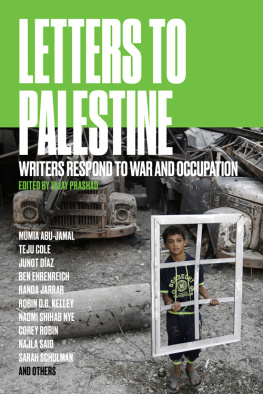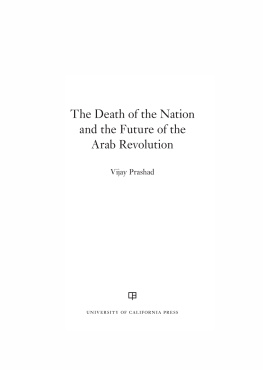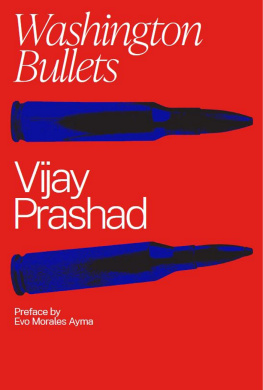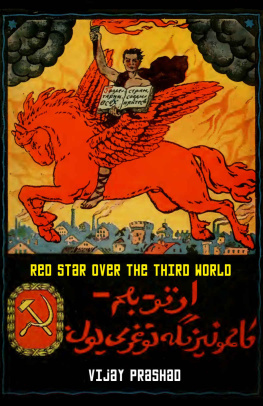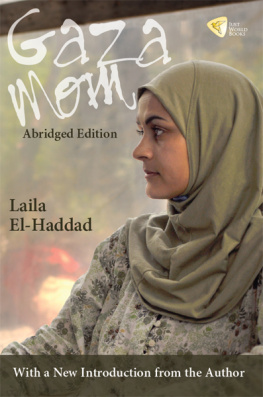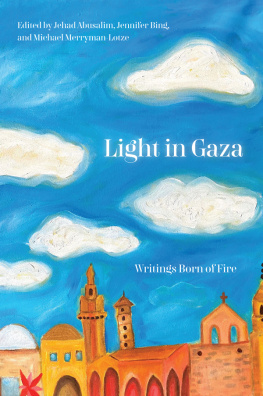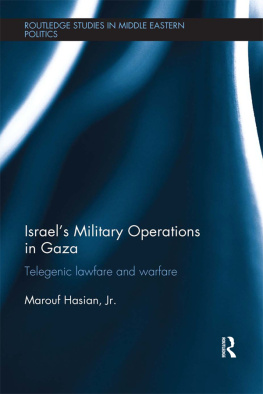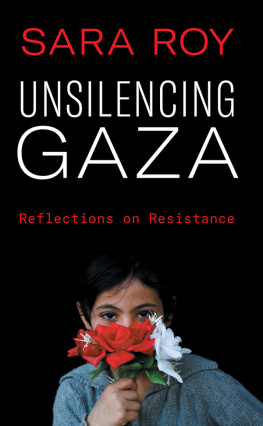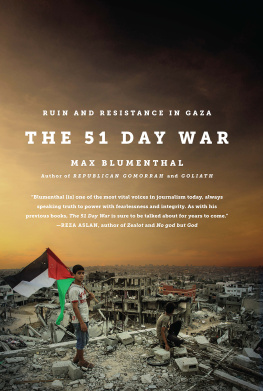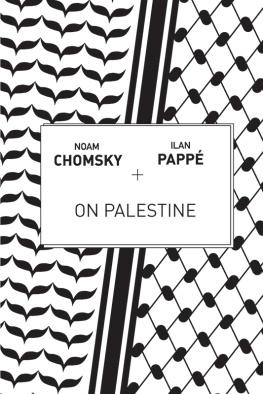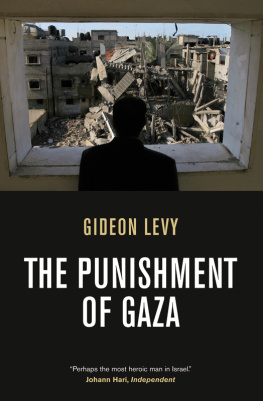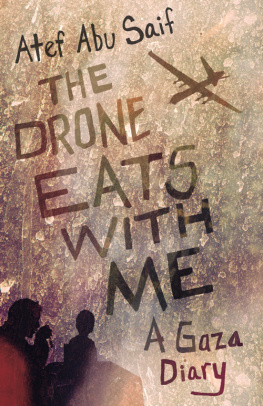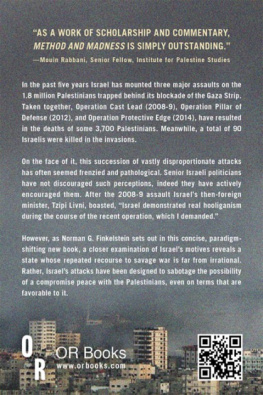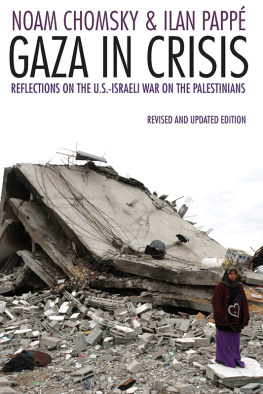
LETTERS TO PALESTINE
LETTERS TO PALESTINE
Writers Respond to War and Occupation
Edited by Vijay Prashad
Foreword by Junot Daz

First published by Verso Books 2015
The collection Verso 2015
Contributions Contributors 2015
The foreword by Junot Daz comes from off-the-cuff remarks he made at Clark University, Worcester, MA, on September 30, 2014.
The introduction by Vijay Prashad is based on his report for Red Pepper, October/November 2014.
An earlier version of Ben Ehrenreichs essay was published in the Los Angeles Review of Books.
Deema K. Shehabis Gate of Freedom first appeared on the Academy of American Poets website as the Poem of the Day on March 10, 2013.
An earlier version of Colin Dayans essay was published in the Boston Review. Nora Barrows-Friedmans essay is an edited excerpt from her new book, In Our Power: US Students Organize for Justice in Palestine (Just World Books, 2014).
All rights reserved
The moral rights of the authors have been asserted
1 3 5 7 9 10 8 6 4 2
Verso
UK: 6 Meard Street, London W1F 0EG
US: 20 Jay Street, Suite 1010, Brooklyn, NY 11201
www.versobooks.com
Verso is the imprint of New Left Books
ISBN-13: 978-1-78478-067-8 (PB)
eISBN-13: 978-1-78478-259-7 (US)
eISBN-13: 978-1-78478-294-8 (UK)
British Library Cataloguing in Publication Data
A catalogue record for this book is available from the British Library
Library of Congress Cataloging-in-Publication Data
A catalog record for this book is available from the Library of Congress
Typeset in Electra by Hewer Text UK Ltd, Edinburgh, Scotland
Printed in the US by Maple Press
CONTENTS
Foreword:
Americans Are So Deranged
About Palestine
I grew up in the 80s in Central New Jersey, and every single kind of colonial settler calamity was present in my community. I was friends with an Irish kid, the only white kid in our community, and a hard-core Irish Catholic republican. His family used to pass the hat around in church to raise money for the IRA. My other friend was an Egyptian kid whose family extended into Palestine, and throughout the 80s, while everybody else was watching John Hughes movies, this kid had me on point on Palestine. And then of course this was at the height of the apartheid movement. So all of my African American friends, well, two of them, not all of them, had parents who were part of the leftwing, pro-ANC, anti-apartheid movement. Im in this poor community and this is all just getting beamed into my head.
So by the time I was in college, I could give you chapter and verse on anti-Zionist projects. And look, for many people its a really tough issue. Its like weve kind of gotten deranged, so that there are certain areas we cant discuss. And of course the situation in Palestine is an utter taboo in this country. Our ideas of terrorism, our ideas of Arabs, are over saturated with the most negative, weirdly perverse racist ideologies. I cant even turn on the news for five seconds without hearing the most racist shit about Arabs or Muslims. And so in that kind of atmosphere, its just a shouting match. If you say, I think the occupation of Palestine is fucked up on forty different levels, people are like, youre the devil, were going to get your tenure taken away, were going to destroy you. You can say almost anything else. You could be like, I eat humans, and theyll be like bien, bien.
On the basic, basic level: If you are occupying other peoples shit, guess whatyou are fucked up. Thats that. And thats a tough thing for people to stomach. Because we live in a country thats currently occupying peoples fucking land. Perhaps Americans are so deranged about Palestine because Americans are thinking, if we give up here, these fucking Indians are going to want their shit back. Well, maybe they should get their shit back. Since 90 percent of us dont own anything, I dont know how much it would hurt us.
Introduction:
A Country in Darkness
Forget Palestine
Palestine is easily forgotten. There is war. There is suffering. The war ends. The suffering vanishes. Silence.
Was there even a war? Palestine is under occupation, and has been since 1967, since 1948. An occupied land is not at war, can never be at war. It is occupied. Occupation is a state of war. The occupied space retaliates. It seeks its freedom. It is punished. Was Operation Protective Edge a war or a punishment? Operation Grapes of Wrath, Operation Cast Lead, Operation Pillar of Cloudnames less of defense and more of vengeful retribution.
On the night of Tuesday, July 29, 2014, three shells hit the Jabalia Elementary Girls School in Gazaa UN-designated emergency shelter for 3,300 Palestinians. Those who had taken refuge there came because the Israelis had warned them to leave their homes. The UN had given the Israelis the coordinates of this school seventeen times. Their warnings made no impact. The shells killed at least sixteen people and wounded hundreds. The UN Relief and Works Agency for Palestinian Refugees (UNRWA) chief, Pierre Krhenbhl, said in a powerful statement, Children killed in their sleep; this is an affront to all of us, a source of universal shame. Today, the world stands disgraced.
Israel destroyed Gazas only power plant, which impacted the already fragile sewage and water purification system as well as food storage. Electricity was mostly off, which meant that the Palestinians were cut off from the world. As it is, when Israel conducts its operations inside Gaza, it seals the area, preventing media from entrance. The aftermath of these operations has been devastating, whether in Gaza Citys neighborhood of Shujaiyya or the town of Khuzaa. Forty-four percent of Gazas 140 square miles (360 square km) was designated a buffer zone by the Israelis. By the end of this pummeling Gazas Ministry of Health puts the figure for the dead at over 2,000 and the wounded over 11,000. Seven of ten Palestinians killed in this war were children.
The UN Human Rights Council voted for an investigation of alleged war crimes by Israel against the Palestinians. The call for accountability came from most of the worlds states. But accountability there will not be. Indeed, there is barely memory. Palestine is forgotten.
As I write these lines, Jerusalem is in torment. Tensions are about as high as they were in 2000when Ariel Sharon went to the Al-Aqsa Mosque. I watch a video taken by BTselem of a disabled twelve-year-old boy, a-Rajbi, being detained by two strapping Israeli soldiers; they handcuff him brutally as he stands there and screams near his village of Jabel Johar, Hebron, near the settlement of Kiryat Arba. The settlers stand and cheer, one throwing out a clichd racist slur. I watch another video of an Israeli officer accusing Israeli activists of treason for trying to prevent the removal of Palestinian farmers from their land. There are fast-moving tragedies. Already the 2014 Gaza War seems dwarfed by the escalation in Jerusalem.
One day Palestine will become what it wants. But that day is not now. Now Palestine is a shadow.
I drew her bleeding
One more war, one more exhausting period for the Palestinians filled with death and destruction, terror and its traumas. Wars come in a sequence: 2014, 2012, 2009, 2006 This chain of numbers says nothing of the everyday war that eclipses the smiles of ordinary people who have to make bare lives in extraordinary times. Every document of the Israeli occupation and suffocation of Gaza resembles every other one. There are the forensic texts of human rights groups and the UN commissionsactuaries of the occupation, the authors of these documents give us the scaffolding of devastation. Poets and filmmakers, storytellers and pamphleteers fill their artifacts with sentiment. How many times can a human being hear that in seven weeks the Israelis killed over 2,000 people, injured tens of thousands, demolished the lives of hundreds of thousands, wiped out buildings that heal, teach and shelter?

